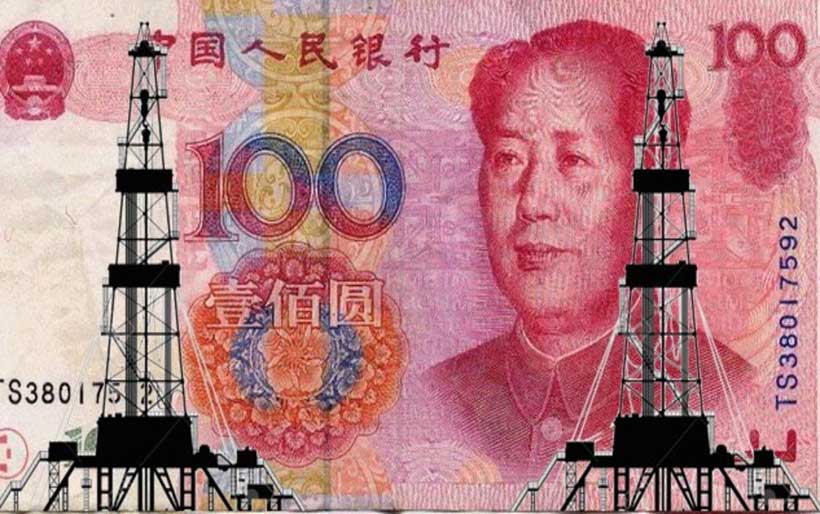Amid rising tensions between Saudi Arabia and the United States, the Kingdom is in talks with the Chinese to strike a deal to trade oil with China in Yuan rather than Dollars. The move would significantly dent the dollar’s dominance, cracking the petrodollar economy which has been the core staple for International oil-related sales for the past 40 years. Soon after the report by Dow Jones the Chinese Yuan recovered a loss of 0.3 percent and traded slightly better against the dollar at $6.39.
The discussions between the two countries had been underway for nearly half a decade but so far had yielded no significant results. However, this year, after increasing grievances and concerns over Washintongs lack of commitment, the Kingdom accelerated its efforts to step away from its overreliance on the United States.
To clarify, Saudi Arabia has protested over the United States’ lack of support in the Yemen War and over its decision to maintain silence after an alleged Iranian missile attacked major Saudi oil cities in 2019. Moreover, the Saudis have voiced their concern over the Biden administration’s efforts to restore the Iran Nuclear Deal. Iran is a long-time rival of the Kingdom, and the two countries have been in a Cold War for some time now. Relations between the U.S and Saudi Arabia hit a low point when the Biden administration criticized the decision to not punish Saudi Arabia’s crown prince for his purported role in the assassination of the journalist Jamal Khashoggi.
Read More: Saudi Arabia invites China’s Xi to visit Kingdom
Moreover, as the recent war in Ukraine marked the shift in the geopolitical landscape and changes underway in global alliances, Saudi Arabia wasted no time in coming to its conclusion. Amidst the rising tensions because of the Russia Ukraine conflict, Saudi Arabia snubbed U.S’s requests to help tame the increasing oil prices in the international market. Furthermore, the Saudi Crown Prince Mohammed bin Salman declined U.S. requests to speak to Mr. Biden. “There was some expectation of a phone call, but it didn’t happen,” said a U.S. official after the crown prince had declined to take up the call.
On the contrary, Saudi Arabia ended up inviting the Chinese President Xi Jinping to visit the Saudi capital as the Kingdom amid strained relations with Washington. The trip is expected to convene sometime around May after the Holy month of Ramadan. This would also mark President Xi’s first foreign trip since the pandemic began in 2019.
Read More: Brent oil prices rise 5% after slump
It is pertinent to mention that Saudi Arabia, in exchange for security guarantees, exclusively trades oil for dollars following a deal with the Nixon administration. And the world over, almost 80 percent of the oil sales in the world are conducted in dollars. However, Saudi Arabia has been very concerned about the credibility of the security guarantees after the lax response from the United States following the 2019 missile attack on its oil sites. If Saudi Arabia decides to export oil to China in exchange for Yuan, it would have a profound impact and boost the Chinese currency.
Read More: US worried over Russia-China ‘hostile’ alliance
China currently buys around 25 percent (1.76 million barrels per day) of the Kingdom’s oil exports and is the largest importer of oil from the largest export of oil, Saudi Arabia. China is only followed by Russia in importing oil from the country which imports 1.6 million barrels per day. If China and Russia reach an agreement, $62 billion per year will disappear from the international trading market, and an equivalent amount of Yuan will be pumped in.
The United States, on the other hand, has reduced its reliance on the Kingdom for its oil reserves. In 1980 the United States used to import more than two million dollars per day, but those numbers have plummeted to less than 500,00 barrels per day.
Talking about the relationship between the U.S and Saudi Arabia, a Saudi official said, “The dynamics have dramatically changed. The U.S. relationship with the Saudis has changed, China is the world’s biggest crude importer and they are offering many lucrative incentives to the Kingdom,” reported The Wall Street Journal.














